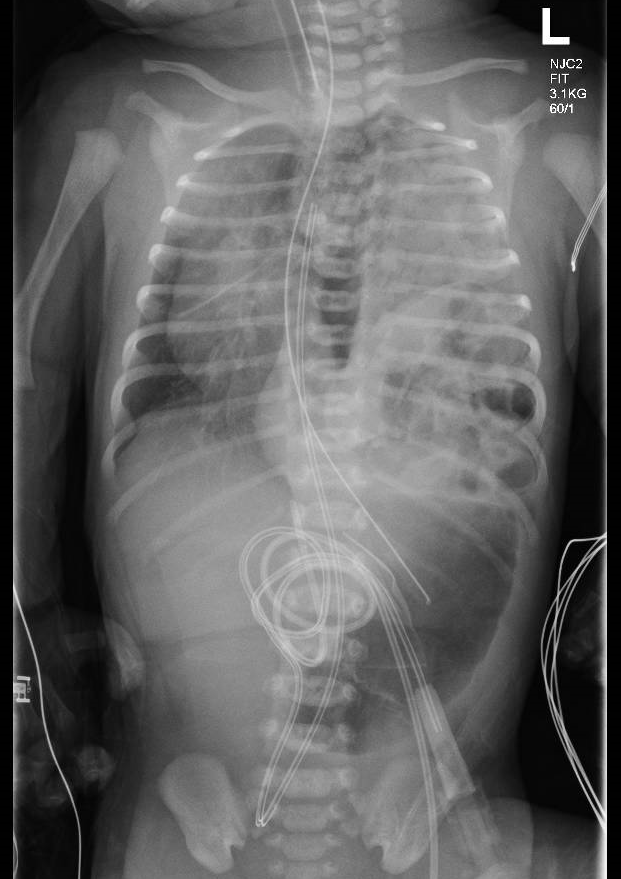
A newborn baby born with a rare organ defect is “thriving” after undergoing life-saving surgery at 48 hours old.
Scarlett Woods was born at Mater Hospital in Queensland on August 7 with a deadly condition which made her organs slide around inside her body.
The now month-old baby was suffering Congenital Diaphragmatic Hernia (CDH), a potentially fatal defect that leaves a hole in the diaphragm and allows organs to move to the left side of the chest where the heart and lung should be.
READ MORE: Scientists mortified at what ate this massive shark
Scarlett was operated on successfully and was discharged last week to go home.
X-rays of Scarlett shortly after birth showed there was a bowel in the left side of her chest, meaning her heart and other organs were pushed to the right.
Scarlett’s mother Jade Curriez, 26, had noticed decreased fetal movement in her 37th week and visited Mater Hospital.
“Everything happened so quickly,” Curriez said.
“We saw surgical consultants, cardiac specialists, neonatal consultants and there was so many appointments – all of which we are grateful for.
“I was so nervous. We went from having what we thought was a healthy baby to a baby that needed life-saving surgery.”
READ MORE: Police investigating death of baby at family daycare in Brisbane
Curriez and Woods are now at home in Ipswich with Scarlett, who has recovered well.
“She’s strong. She’s a fighter and she’s thriving,” her father Jamie Woods said.
“I held Scarlett for the first time when she was around six days old, and it was love at first sight. There were tears, lots of tears.”
He added: “It was the best feeling in the world. Watching her get bigger and stronger is just amazing.”
Scarlett stayed in Mater’s Neonatal Critical Care Unit (NCCU) for about three weeks before her parents could take her home to Ipswich.
Dr Pita Birch, Mater Director of Neonatology, said CHD generally has a survival rate of 50 to 60 per cent.
“There are only around 10 to 15 babies a year born with this condition at Mater,” Dr Birch said.
“The management of this condition is very complex, requiring a lot of skill and understanding from a multidisciplinary team.”
links to content on ABC
9News





